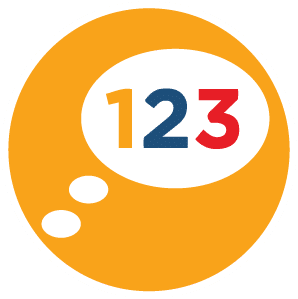Take-Home Strategies
Browse strategies families and caregivers can use at home to support children's development of Core Skills

About These Strategies
This library contains strategies that family members and other caregivers can use to foster children’s Core Skills at home. The Core Skills are the foundation for children’s learning. Each Core Skill includes several individual skills that grow from infancy to preschool. Each activity can be adapted to support every child’s development and fit within their family’s routines, values, culture, and preferences.
Relate
Help children develop secure relationships with their caregivers
Help children learn to connect with others and develop friendships
Empower children as they learn to solve social problems
Help children consider the needs, feelings, and perspectives of others
Help children learn about who they are and what makes them unique
Support children as they try new things and take on meaningful tasks

Regulate
Support children as they begin to recognize, label, and express their emotions
Help children work through their strong emotions and learn calm-down strategies
Support children to learn to remember and use information during a task
Help children shift their thinking to adjust to a change or approach tasks in new ways

Move
Explore how to help young children develop their gross motor and fine motor skills, as well as foster their self-care and healthy habits.
Support children’s abilities to move around and engage in physical activity
Help children control and strengthen their small muscle movements to perform basic self-help and learning tasks
Promote children’s self-help skills and encourage children to do as much as possible on their own
Introduce and encourage positive thoughts and healthy habits from a young age

Think
Explore ways you can foster young children’s thinking skills through play, exploration, and discovery.
Model and scaffold the use of symbols, props, and roles – all foundational pieces of pretend play
Help children explore, investigate, and be curious about the world around them
Encourage children to observe, analyze, experiment, and make predictions
Support children’s thinking by encouraging them to explain, discuss, and justify their ideas
Give children the right amount of challenge and support to solve problems on their own

Think - Math
Explore how you can help young children develop foundational math skills in the areas of numeracy, operations, geometry, spatial sense, patterning, and measurement.
Engage infants with early math concepts through reading and exploration
Help children recognize quantities and the symbols that represent them
Introduce concepts like adding, subtracting, and sharing fairly
Encourage children to identify, extend, and create patterns
Help children explore the properties of shapes and identify position in space
Encourage children to compare the length, height, and weight of objects

Communicate
Explore how to help young children develop foundational skills that support language and literacy.
Encourage and support children’s communication skills to share ideas and connect with others
Help children understand the language and communication that’s happening all around
Support children’s understanding and use of new words
Support children’s interest in print and how we use it in our world
Foster children’s writing through engaging and everyday activities
Help children explore and pay attention to the sounds within spoken words

STAY CONNECTED
Get Our Newsletter
Each month, we feature new content and ideas. Subscribe to our email newsletter to stay up to date with our latest resources and offerings.